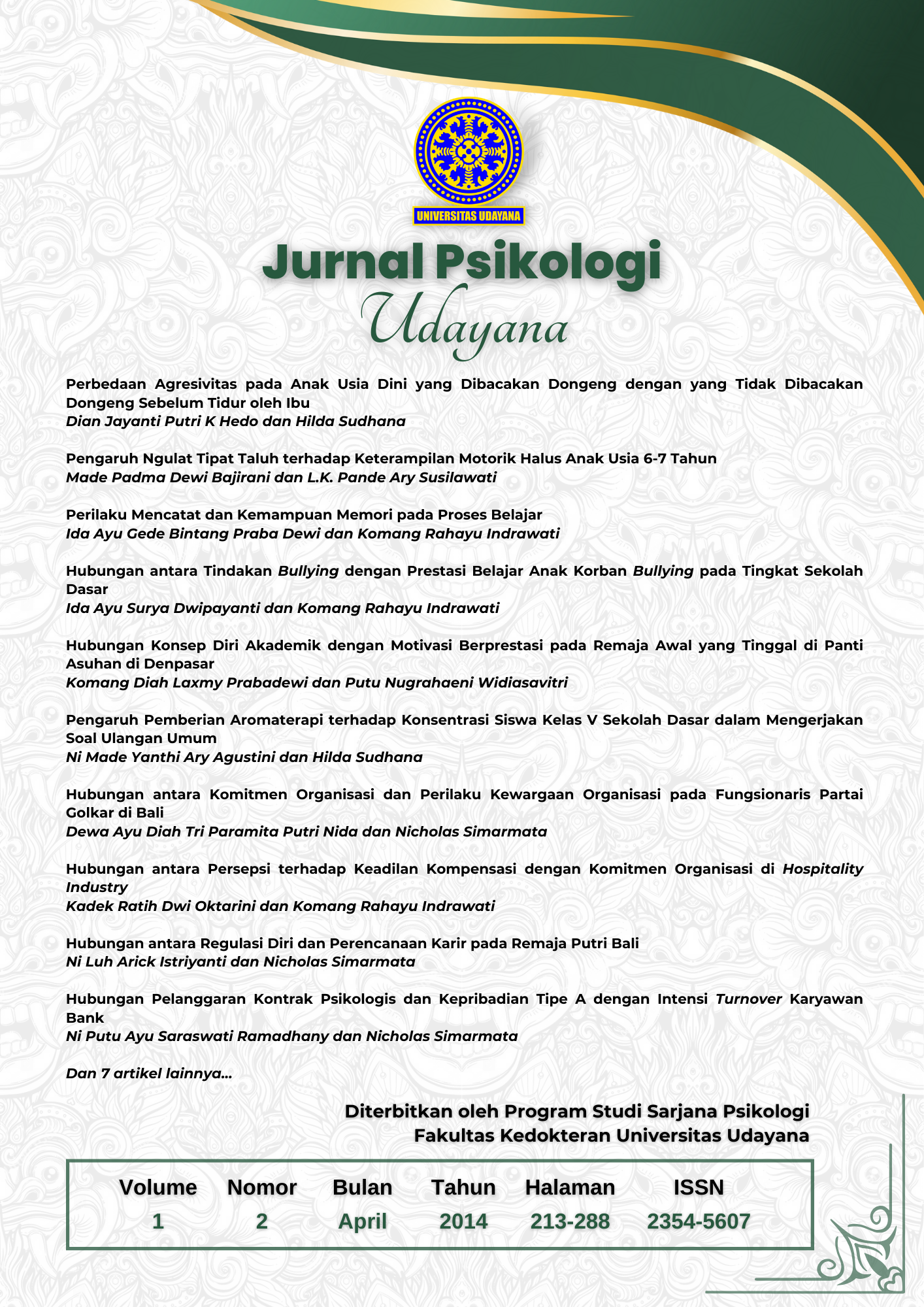Kebermaknaan Hidup pada Anak Pidana di Bali
Abstract
In recent years, cases about juvenile deliquency in Indonesia has increased with the most cases are sexual harassment, drugs, murdering, and stealing (Hasinta, 2010). According to Indonesian regulation nomor 12 tahun 1995, if a juvenile deliquency case has been done by an 18 year old adolescent or less and it has been proved by the court, the adolescent will be called anak pidana and they will be educated in a prison for adolescent but more like education centre, such as in Lembaga Pemasyarakatan Anak Kelas II B Karangasem, Bali. Living in a lembaga pemasyarakatan will be much different from common life outside, such as experiencing the loss of freedom (Dewi, 2012). In surviving to this situation, adolescent needs to know the meaning of their life and this issue attracts the researcher to find out what is the meaning of life of anak pidana who lives in Lembaga Pemasyarakatan Anak Kelas II B Karangasem.
This study use qualitative method with phenomenological approach, with 6 anak pidana as the subject. The result shows that there are 6 aspect of the meaning of life of anak pidana who lives in Lembaga Pemasyarakatan Anak Kelas II B Karangasem, which are the most valuable thing in life, satisfaction in life, freedom, right to live, personal change, and life-acceptance in Lembaga Pemasyarakatan Anak Kelas II B Karangasem. Detailed result will be discussed in the context of intergroup process.
Keywords: meaning of life, adolescent, prison, Bali
Downloads
Authors who publish with this journal agree to the following terms:
- Authors retain copyright and grant the journal right of first publication with the work simultaneously licensed under a Creative Commons Attribution-ShareAlike 4.0 International License that allows others to share the work with an acknowledgement of the works authorship and initial publication in this journal.
- Authors are able to enter into separate, additional contractual arrangements for the non-exclusive distribution of the journals published version of the work (e.g., post it to an institutional repository or publish it in a book), with an acknowledgement of its initial publication in this journal.
- Authors are permitted and encouraged to post their work online (e.g., in institutional repositories or on their website) prior to and during the submission process, as it can lead to productive exchanges, as well as earlier and greater citation of published work (See The Effect of Open Access).













